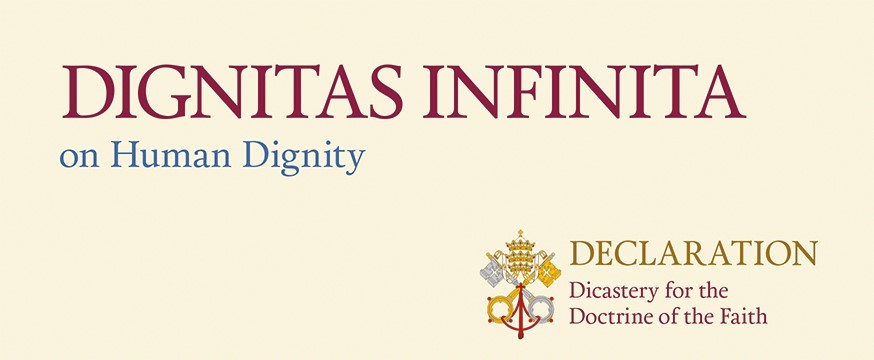In response to the publication by the Dicastery of the Doctrine of the Faith of the document Dignitas Infinita, on Human Dignity, Bishop Kevin Doran of Elphin, chair of the Council for Life of the Irish Catholic Bishops’ Conference, stated,
“I welcome the publication by the Dicastery for the Doctrine of the Faith of a new document on human dignity, Dignitas Infinita. This document makes it clear that Human Dignity is not something that is given or conceded by law, or something which a person can somehow ‘lose’. Human dignity is inherent in the human nature of every person. As the document states, ‘Every human person possesses an infinite dignity, inalienably grounded in his or her very being, which prevails in and beyond every circumstance, state, or situation the person may ever encounter. This principle, which is fully recognizable even by reason alone, underlies the primacy of the human person and the protection of human rights. In the light of Revelation, the Church resolutely reiterates and confirms the ontological dignity of the human person, created in the image and likeness of God and redeemed in Jesus Christ.’”
Bishop Doran continued, “Dignitas Infinita addresses a wide range of circumstances in which particular actions, or failures to act, by individuals or by the State, would contradict the dignity of a person or a whole group of persons. These include sexual abuse, human trafficking, abortion, discrimination against migrants or people with disability and violence against women.
“At a time when euthanasia and assisted suicide are being actively promoted by vocal minorities in many countries including our own, the following extract from Dignitas Infinita is particularly relevant:
ENDS
- Since 2019, the Vatican’s then-entitled Congregation for the Doctrine of the Faith has been preparing to highlight ‘the indispensable nature of the dignity of the human person in Christian anthropology and illustrating the significance and beneficial implications of the concept in the social, political, and economic realms – while also taking into account the latest developments on the subject in academia and the ambivalent ways in which the concept is understood today.’ Today’s publication of Dignitas Infinita represents the fruit of this work.
- To access the text of Dignitas Infinita, on Human Dignity, please click here

